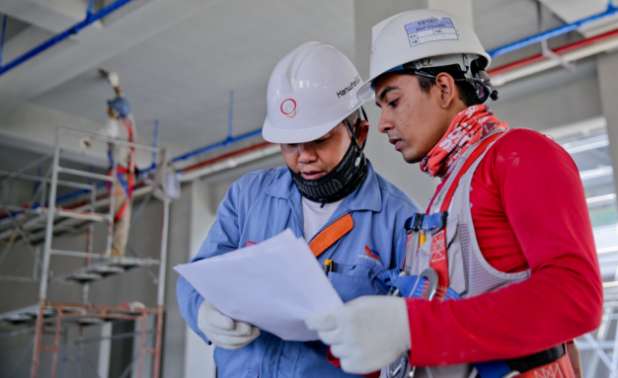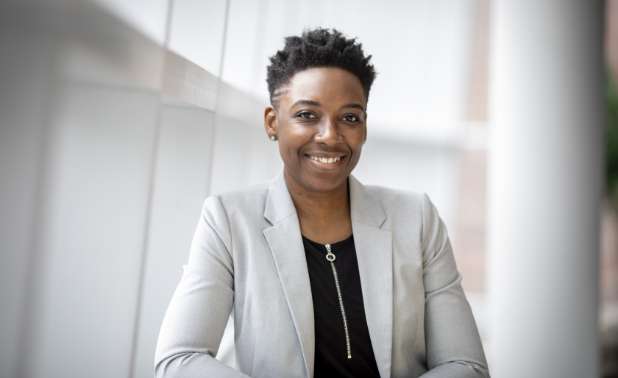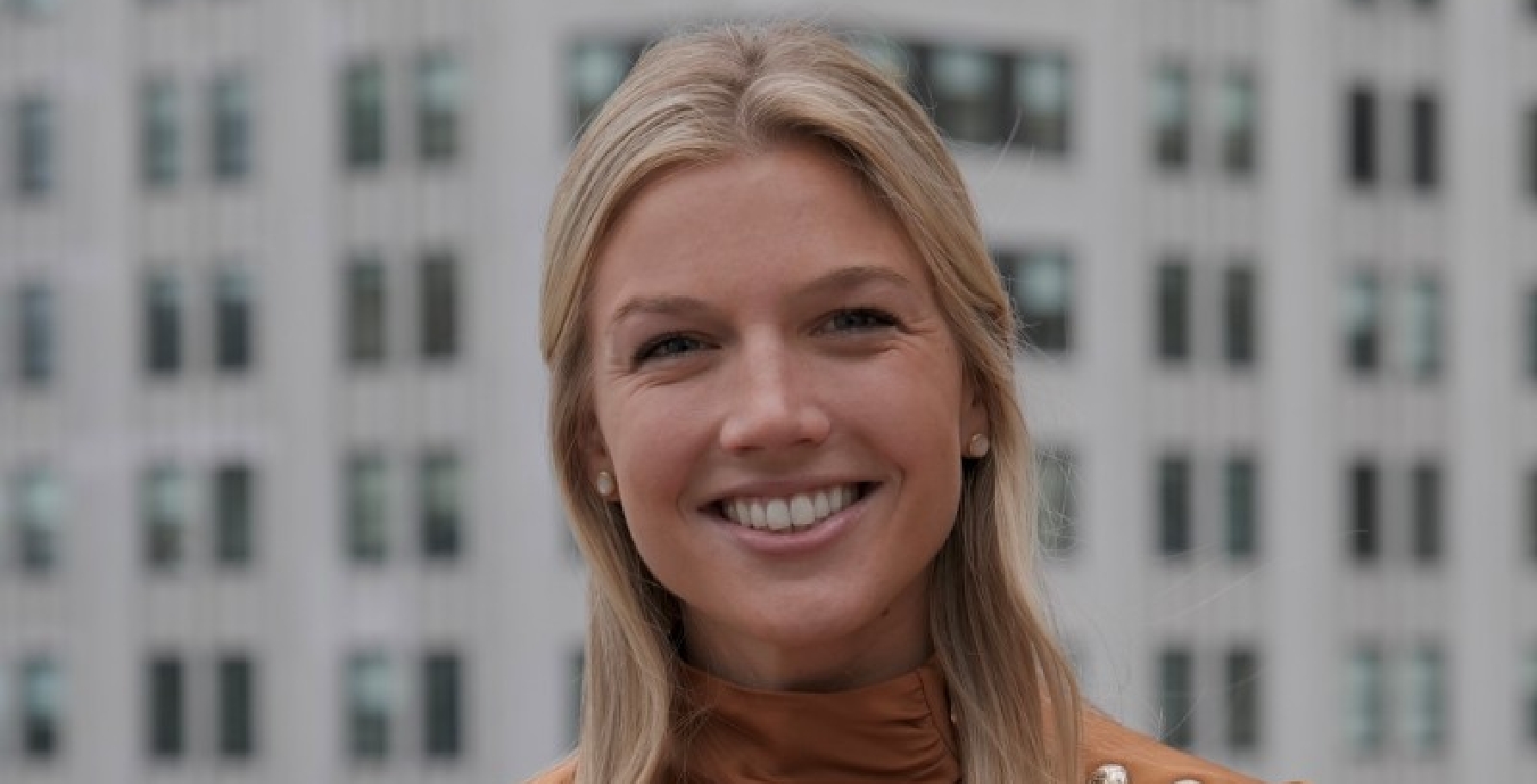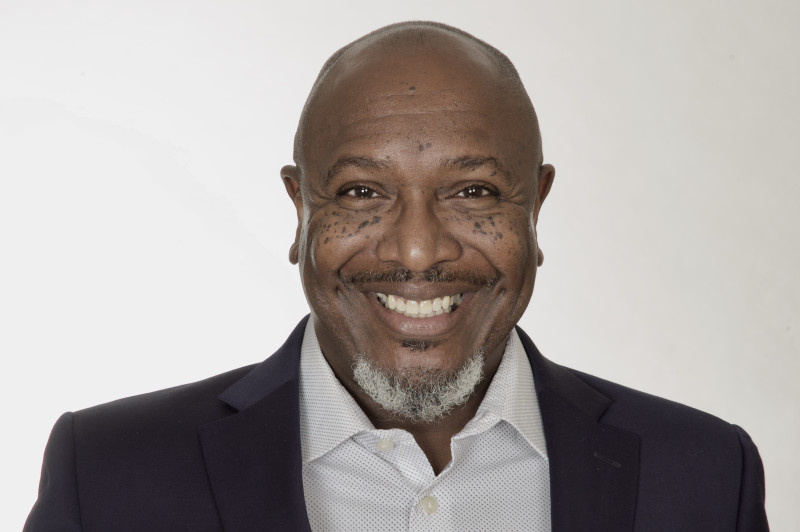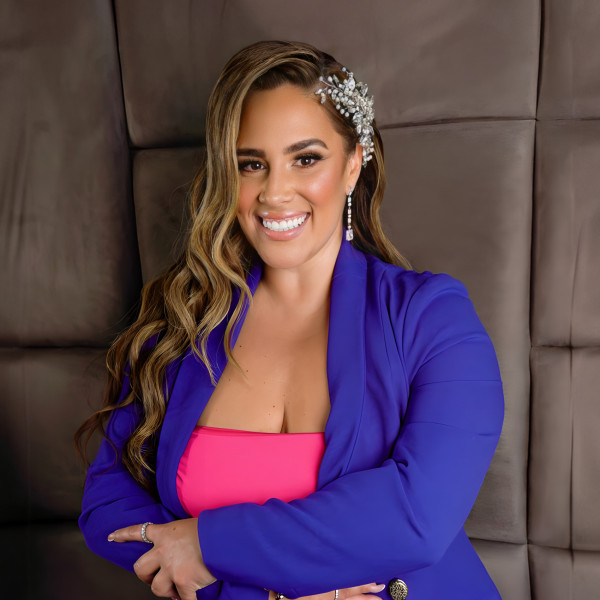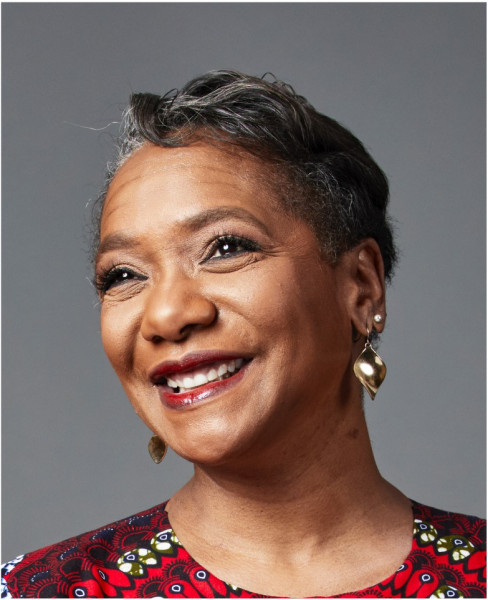Jenny Davis:
Welcome to But First, People, a podcast brought to you by Pride Global. I’m your host, Jenny Davis, vice president here at Pride Global. Along with my colleagues on this podcast, we will dive into diversity, inclusion, and equity to service and staffing in the human capital industry. Join us each month as we sit down with industry experts to share their stories.
Jenny Davis:
Welcome back to But First, People. My guest today will be familiar to many of the Pride Global colleagues listening in as she leads Pride’s talent engagement team. Everyone at Pride spends a bit of time with Annie Davies, whether it’s taking online coursework through our learning management system, participating in cultural programming, or just having the good luck to run into one of the brightest members of our internal team. Annie has already made a huge impact at Pride since joining the company in 2017 as a recruiter at Russell Tobin, and through work such as her participation on the steering committee for Lioness, Pride’s Women’s Equity Initiative, she has strived to ensure women professionals have even more opportunities for success here—and she does it through her own experience and shared passion for people. Annie, thanks so much for joining But First, People. I’m so happy to have you today. I appreciate you doing this. So as all attendees of our podcast, I have to ask: can you kick us off with a little song?
Annie Davies:
Yes. This feels like my first day at Pride five and a half years ago!
Jenny Davis:
Wow.
Annie Davies:
So I’m going to sing the same song that I sang on that very first day.
Jenny Davis:
Oh, nostalgia.
Annie Davies:
I know it was “Under the Sea” in The Little Mermaid, because that was the only thing that came to mind that day. So… [Sings “Under the Sea,” joined in part by Jenny]
Jenny Davis:
Whoo! So good. Thank you.
Annie Davies:
It felt very reminiscent. Yeah.
Jenny Davis:
Ugh, so good.
Annie Davies:
Because Pride is our “Under the Sea!”
Jenny Davis:
They are. So wonderful. As a leader of our talent engagement efforts here at Pride, I would love for you to imagine that you are sitting here on Planet Earth, and a UFO lands, and out walks an alien. You’re just trying to be nice—because that’s who you are, and you’re extroverted and you’re probably not afraid. Honestly, Annie, I bet you’d just walk up, because that’s who you are, and be like, "Oh, this is interesting! This is a new life moment!" And they say to you, "Hi, what is it you do here?" How would you explain talent engagement to someone who doesn’t understand it in our industry or beyond?
Annie Davies:
Yeah, I mean, I think I can put it very simply. The best way is: my job is for the people, and I take care of the people at our company. I think you can look at that in a lot of different lenses, but I think if I had one sentence to say, it’s, “I oversee and take care of the people at our company and do what’s best for them.”
Jenny Davis:
And that’s not an easy job. It’s a very hard job, actually, right?
Annie Davies:
Yeah.
Jenny Davis:
On the heels of you and I—actually, we went to the LinkedIn Talent Connect conference last week with the intention of all of that, being around talent connection, and understanding the new generations of work, and how we think about that. It’s wild how important and relevant your role is in a world where this role didn’t exist 10 years ago.
Annie Davies:
Two years ago!
Jenny Davis:
Two. Yeah, you said two, I said 10, but you’re right, it’s probably two. It’s just fascinating. So, right. Talking about an alien, but honestly, it’s people in the U.S. who don’t understand this function and just how necessary it is. I think the thing that I find interesting about it is we talk about it a lot with Gen Z and xennials, millennials, all this stuff—but really, how valued this job would and could have been for the ones who have work before us, right?
Annie Davies:
I agree. Yep.
Jenny Davis:
That talent engagement is a new concept, but it probably shouldn’t have been, and in a role that was often owned by HR, right? So thinking about that and knowing that this was often a bucket of something that was run by an HR manager or a leader, maybe, if you were lucky—or if you were in a mid or small size company, you probably just didn’t have any of it, and you were just sort of expected to show up and do your job and maybe hope for the best and get a check. Why do you think talent engagement and talent management exists today? And what does it mean to you? What does talent engagement mean to you, Annie?
Annie Davies:
I think it means thinking about—10 years ago, what it meant to be a worker is very different than what it means to be a worker in today’s society. I think that we really, at our company in particular and companies that place value on talent engagement, is looking at people as humans first and workers second. We put 40 hours plus into this job. You need to look at the human behind the worker and see what they need and what motivates them, what makes them unhappy, what keeps them here every single day, what do they need to walk into every single day, the types of people that they need to surround themselves with. I think that it’s so crucial that we start with the people first—which is ironic that that’s the name of this podcast—but really putting the people aspect before the worker, because we always preach here at Pride, you can train someone on how to do something, you can teach someone how to do their job, but you can’t teach them the human aspect.
Jenny Davis:
You’re right. Yeah.
Annie Davies:
I think having that talent engagement department, and that department dedicated to looking at what’s fair, looking at what’s changing, looking how people are feeling, looking at motivators, is so crucial in today’s society. Especially with people wanting to change jobs and the talent market being as on fire as it is, especially over the last few years. Your people are your assets, and we need to create an environment that attracts them, equips them, retains them to the best of our capacity.
Annie Davies:
My team, our role starts at onboarding. So, we have an individual who’s dedicated—as soon as the offer is extended to the candidate to work with us internally, that’s where our team picks up and we start the welcome package. We welcome you through the first day, through the door, and bucket number one is training. We want to get our employees up and running as quickly and efficiently as possible, so whether that’s training on your specific job as well as our company as a whole, the different areas, the tools, technology, all of that. So that’s really where we see ourselves, in bucket number one.
Annie Davies:
Then bucket number two is what we call XYME, our performance management system. So, really managing and tracking how individuals are doing at the company, what additional training might they need, where are they falling short, where are they really succeeding, what is really going well. Tracking on their cultural involvement as well as their professional involvement and professional success. And then measuring that, looking at that, analyzing that. Starting to pull good reports and good data from that.
Annie Davies:
And then bucket number three is really that talent management spot, that sweet spot. You’re successful, you’re on the path to success. What are we going to do to keep you here? What is going to motivate you to stay here for the next 2, 3, 5, ten years? And that looks different for every person, which is what drives me. That really motivates me to dig under and figure out what’s going to keep a Jenny Davis here another nine more years. What is that? And personalizing that experience for every single worker here so that they do find this to be their family and find this to be the career for the rest of their lives—if I do my job right.
Jenny Davis:
Wow, that’s so great. That’s so great. Well, that’s what’s so challenging, right? You said, “individualized for every person.” And I think you and I have had a number of conversations about that and our desire to do that. I think it’s what makes you you when talking about why you’re passionate about this and why you care, is you actually do care about people. You do want everyone to be happy here, right? And that’s such a wonderful thing about you sitting in the seat, is I see you get passionate. Sometimes even emotional—
Annie Davies:
Sometimes angry.
Jenny Davis:
—Yeah, angry, emotional, but all good things, like real feelings about wanting people who want to be here and keeping those people who’ve proven to us that they do. I think that’s the nature of the company and the thought around retention, right? I think one of the things I’ve sensed, and you and I have had conversations about, is a really scary word right now in companies is “attrition.” That scares people. And the popular word is “retention.” And I almost say, and I think you and I have talked about this so I know what you’ll say, that part of talent engagement is accepting attrition, right? It’s accepting that part of your pathing, maybe your path leads to a different door and a door that’s not at Pride. I think we do a very good job of recognizing that here. I think some leaders are better than others. But how do you get a culture to understand that saying goodbye is okay? How have you gotten to a place of comfort in that? Or have you? Are you still on the journey to that?
Annie Davies:
Still on the journey. Some people leaving, it hits hard. It always does. And that’s, I think, the nature of being in this seat and being exposed to certain individuals that change your lives. And like I said before, we’re here 40 hours a week; I’m basically in a relationship with every single one of you. Some people leaving, it truly feels like a breakup. I’m like, "Oh my gosh, this is personal." And then it’s emotional. And then there are sometimes love letters involved! We’re breaking each other’s hearts in so many different ways. But I think that’s also the beauty, and that’s the journey right there, is looking back at some of the people who have left, and even my direct reports—it’s how much we’ve impacted them, and empowered them to be the resume that someone wants at their firm, and be the next builder at some other company. And that’s where I really try and focus. But it’s not easy. It’s not something that I—
Jenny Davis:
Desire.
Annie Davies:
—look at every single day and I’m like, "Okay, yeah, that’s great. Let’s do it." But I think becoming a culture where we accept that, we’re on the way. We’ve always been that way. We talk about “tour of duty” and how “internal employees today are candidates tomorrow and they’re our clients tomorrow.” And we’ve always preached that. Does it make it easier every time? No, but I think that hearing from Leo and Tim and senior leaders and yourself, that it’s okay, makes it better. And then we’re able to keep those relationships with those individuals. Seeing people at Talent Connect that worked for us three years ago and we’re like, "Oh hey, this is cool. This is fun. How are you? You want to come back? Maybe not. Okay." But just keeping that alive is special. But I think it’s a really hard thing for companies to accept that leaving is okay.
Jenny Davis:
Right. That it’s part of it. It’s natural, right?
Annie Davies:
It’s a part of the journey.
Jenny Davis:
Yeah.
Annie Davies:
And we hope they come back sometimes. I still hope that some people will come back, but it is a part of the journey, and I think we need to focus on that we enable them to get there.
Jenny Davis:
Yeah, so true. And obviously the goal is that they’re always leaving to do something that they feel is better and brighter for them. We can’t possibly be perfect for everyone. I think that’s a flaw sometimes in talent engagement is, as I read articles about it or being at the conference even, is this idea that your culture must meld and mold to fit the individual. And sometimes that’s just not true, right? It’s just not possible. You may not have an office in a market where someone is looking to move, and you can’t possibly imagine them remote. Or whatever the case may be, there are situations in life that lead people to make decisions. And to me, I think what we’re striving for, and I think what talent engagement seemingly is doing as an industry and as a movement, is trying to make people feel supported while they make decisions and engaged while they’re making decisions. And it’s really about trust. It’s about trust and leadership. It can’t be trust in a sole individual all the time, right? How do you think you build that? How do you think you build trust in leadership in your talent teams to feel that?
Annie Davies:
Yeah, I think it all starts with communication. We were talking about these transformative moments, even at Talent Connect at the LinkedIn conference last week. They can be so small, to build this trust. It doesn’t need to be this massive opportunity that happens or this massive change. It can be as simple as, "Are you happy here? Do you like it here? What motivates you? Do you like your job?" Sprinkling in those little bits and pieces of humanity again are what starts to build those trust and having conversations that aren’t directly related to your job, but they’re, "What are you doing this weekend? Did you like that project that you worked on?” Or, “How is your sister doing?" That’s where you start to break down those barriers, and that’s where you start to build a relationship with the human, because that’s most important.
Annie Davies:
When it comes down to wanting to stay or not, I’m tied to the human. I’m not necessarily tied to the chopping of wood every single day. You’re connected to the family. And we often talk about our company as being the family that people didn’t have or the family that people are always in search of. I think that people who feel part of that feel that trust and feel that you’re going to do whatever it takes to keep them, to make them happy, to find them a job externally, support them when they leave. So, I think it all starts with those little bits and pieces of communication and really showing that you care about the person more than you care about the job that they’re doing.
Jenny Davis:
It has to be a priority. I think by outlining it as a function at Pride, we’re making it a priority in building the blocks to get there, right? Saying, "This is a priority, and we don’t know the perfect path yet, and we’re still designing what it means here." But by labeling it—you are talent and we want to engage with you—should signify an interest in that, that we do care. And I think companies who put that forth are showing that and they show it in a multitude of ways, right? Be it ERGs, be it career pathing, be it state interviews or exit interviews, there’s all sorts of ways that people show up with that. But I think you’re right, that little questions as a leader yourself can be a simple path. And not even a leader, a colleague. Just as a colleague, you build trust, right?
Annie Davies:
Exactly.
Jenny Davis:
Everyone is in the game of this. Talent engagement is a universal team sport. It should be, right?
Annie Davies:
Right. Yeah. It starts the day they sign their offer letter. That first communication that’s happening, we’re engaging them. It doesn’t need to be hard. What I really took away from last week is this doesn’t need to be hard. Sure, tackling internal mobility, yes, that part can be hard, that part can be challenging. Tackling career pathing. Great. But making your people feel welcome, that’s easy, that’s simple. And everyone can play a role in that and that’s where it all begins.
Jenny Davis:
That’s great. I think the other thing too that we’ve talked about at length is when you’re in a fast growth company, like so many companies our size, companies even bigger than us who’ve grown exponentially globally, all of these things, that talent engagement also is at the time of interview. And this idea of having, obviously the separation of talent acquisition and talent engagement, but the marriage of those two, and how important that is, because your culture is so clear in an interview, as is the culture of that human. When you move too quickly through that, you are now in a relationship that is built on shaky foundation. To your point about building trust walls and all these things, if that’s not a moment to identify, "What are your motivators? How are you? What makes you happy? Can we do those things? Can we deliver against that?” So, what role do you think talent engagement plays in the talent acquisition process?
Annie Davies:
Yeah, I think you kind of nailed it there by saying... I interview mostly for things like that, for culture, for how they’re going to show up every single day, and what they’ll bring to the table, and what success looks like, and what are motivators. If motivators aren’t team goals, that might be a little bit of a red flag for us. We’re not looking for the sharp-elbow type of person to come into our company. We’re looking for someone to slide right in and be a part of the team. So, when I ask those types of questions, that’s what I’m looking for. I’m also looking for positivity always. Those are kind of my biggest things. They are adaptability, positivity, and how you’re going to interact with the rest of your team. Because someone who comes in as a Debbie Downer, OMG, you are not going to survive here, right?
Jenny Davis:
Yes, totally.
Annie Davies:
So that’s what makes it. But I think having these cultural interviews, and just looking at the person and who they are, it’s hard. It’s really hard.
Jenny Davis:
It is hard.
Annie Davies:
We’ve made some mistakes. Absolutely.
Jenny Davis:
Right.
Annie Davies:
But placing an actual emphasis and dedicating one sole interview to culture is helpful, always. So, I’m always ready to jump in and help interview somebody from that perspective just to see, "What is your role in a team? How do you feel when you’re not the leader on a project?" Things like that really kind of get people to share what their kind of true colors are.
Jenny Davis:
Yeah, and current frustrations; I always think it’s a way to see if we can answer them. That’s what I always say. From a culture and talent engagement question, I say, "What about your current role doesn’t keep you engaged or doesn’t keep you happy?" Because I want to either answer that and help—or tell you that I can’t. Because some people, it might be something very simple that we also can’t solve for, and they’re going to come here and six months later aren’t engaged and aren’t happy talent, right?
Annie Davies:
Absolutely.
Jenny Davis:
And then you’re on this revolving roller coaster of trying to retain someone who probably shouldn’t be. And I think that’s why, again, you and I talking about this freedom to attrite in a positive way that’s about pathing and keeping your talent engaged enough to tell you those things. I think we talk about a breakup and all that; breakups hurt when you don’t see it coming. I think a lot of talent engagement is the goal of feeling like we’re together on the path. And wherever that path leads, at least we’re together. We may not be together at the end, but there’s a long road. And when you hire people in discovery phases of life, there’s a long road to what their career may be, right? You’re a great example of it. Coming into one role and coming into your own and really thriving in another seat, it’s a beautiful thing to watch. And you want to help people do that.
Annie Davies:
You do. You do. It does start with—it cannot be easy to walk up to your manager and be like, "Hey, I’m not happy here." Cannot. And it isn’t. But it’s our job as leaders and as managers to move the needle a little bit towards that, so that we can have those open and honest conversations, because maybe there is a role here. We don’t know. So, I think “attrition” is a bad word, but I think if we view it as an opportunity, an opportunity to place somebody, an opportunity to change their livelihood, an opportunity to form a new client relationship, then we’re really looking at as a business growth, rather than losing somebody.
Jenny Davis:
Right. And an opportunity to learn, right?
Annie Davies:
Mmhmm.
Jenny Davis:
What could we have screened?
Annie Davies:
Why did you leave? Yeah.
Jenny Davis:
Right. What could we build differently next time? What could we have screened for in you that would’ve allowed us to see this or not? And sometimes it’s just not. You never know. It is what it is and how here we are, and that’s okay. I just think that’s such a—attrition is just never really part of the frame. And I think you’ve done a really good job in conversations with me as a leader talking about keeping that in the frame, being like, "This might be what happens when we have these conversations," and we all have to be comfortable with that. I think getting the corporate culture of America and the world to kind of understand like, that’s not a reflection on leadership, that’s not a reflection on you as a company. It’s a reflection on having trust and conversations in communication, right? So, I just think the reframe of that would be so beneficial to the cultural movement of people moving and leaving and coming and going. And you mentioned Tim Tobin, and he’s just that beacon for me where he brings people in, and he might lose someone, and the first person to say something positive about that is him. He’s like, "Oh yeah. Well now they’re here and that’s going to be great because now they’re a friend over there in that state where we’re not."
Annie Davies:
Exactly.
Jenny Davis:
It’s just constantly—
Annie Davies:
We all need a dose of Tim Tobin in that sense.
Jenny Davis:
Yeah, we do. Right?
Annie Davies:
Yeah.
Jenny Davis:
Yeah. That feeling of—this presents an opportunity for them and us, every time. And again, what does that come back to? A culture of positivity around these things, and feeling like, "Okay, that’s just a new step, and it’s a new direction. It’s not a loss."
Annie Davies:
Exactly.
Jenny Davis:
I think “attrite” means “losing” in your mind, and maybe it’s not. Maybe it’s not.
Annie Davies:
It isn’t. I think our whole industry is going to see this shift. The word was “retention, retention, retention,” how do we solve for it, at the conference last week. And I was like, "Okay, so everyone’s going through this right now." We all just need to accept that this is a part of our future. It’s a part of the labor market. People are not staying at their jobs for 25, 30 years anymore. (Except for the two of us, we’ll be here forever. I know it.) But they’re bopping around, they’re seeing what’s out there. They’re exploring remote. They’re exploring new industries. It is just the nature of the industry. So, I think that we can form the path of accepting it early, making it a business opportunity and making it a part of our fabric that, "After two years, if this isn’t for you, great. We will help you find a new job." And the more we preach that, the more that we exercise that, we’re going to be ahead of the curve with that type of rotation and attrition so to speak.
Jenny Davis:
Yeah, that’s great. We just have an industry and, I think uniquely in the staffing industry, we’re also built to benefit from this ceiling, especially in the world of contract and choosing that. I do think there’s probably a shift when you look at the talent of the world. If long-term tenured work is not the desire, what does that mean for contract and contingent labor as we move forward as a country? And I think it’ll be really interesting, because I think there’s still a hesitancy in some young people to go in that direction. But when you watch young people, they’re not staying places as long. It’s just a fascinating thing for me, I think, as we talk about what does talent engagement mean if your window is short?
Annie Davies:
Very short.
Jenny Davis:
And I think you’ve talked about that, right?
Annie Davies:
Yeah.
Jenny Davis:
If we have two years to make an impact with you and for you to make an impact with us, how do we make the most of those two years? Because two years flies.
Annie Davies:
It flies by. Yeah, absolutely. We have roughly a two-week training program here, and then you’re off to the races. We do refresher trainings twice a month and things like that. But for the most part, especially in the world of recruiting, you learn on the phone, you learn in the seat.
Jenny Davis:
You do.
Annie Davies:
But we are working every day. A goal of the training team is just pushing productivity—that curve—back one month. One month gives us even bigger opportunites to be successful with that individual if they’re only here two years. And then the goal after that is push it back two months. So, it’s a slow build, but these little increments of success make a big impact for the training world, and making the most of their roughly two years at each company.
Jenny Davis:
And getting people—
Annie Davies:
But it’s stressful.
Jenny Davis:
It is.
Annie Davies:
It’s stressful every day.
Jenny Davis:
Yeah. And getting people to taste the job faster—they also taste if they like it, you know? So, getting people involved and in the moment and letting them experience the role will only encourage them to experience and hopefully build those trust relationships more quickly. And it’s just this continuous cycle. But it is so hard because when we’re saying these things like, "Put the people first. This is a family, and you’re in a relationship with this person," you really do. I think our managers at Pride are so successful because you watch them give everything to people.
Annie Davies:
Everything.
Jenny Davis:
Everything, right? You watch it. And I think I see in you often this desired passion to make sure that’s rewarded or felt or seen, or that people know how much that person cares, and trying to be that bridge, right? Sometimes there’s not always an employee to manager connection, and you are that connection. How do you carry that responsibility? This feeling of, like, it’s up to talent engagement to understand the motivations and then communicate that in a safe way.
Annie Davies:
Yeah, I think as we’ve grown—you and I have had this conversation two years ago—I knew everyone here. We were about half the size probably. I knew everyone’s name, their dog’s name, their favorite color, their favorite restaurant, what they were doing this weekend. And that felt good to me because I felt like I knew the motivators through just knowing the human.
Jenny Davis:
Right.
Annie Davies:
We’re double in size now. You and I have talked about this, I’m like, "I don’t know everyone anymore as well as I used to." And you’re like, "That’s okay. That’s okay." And that’s something that I still haven’t gotten over. I still don’t love the fact that I don’t know the personal ins and outs of every single human in our firm. So, I’ve learned to lean on all of the managers, and empowering them to ask these questions and have these conversations and understand, "Okay. Who needs what? Who needs this? Who needs the love here? Who needs that? Who needs to get into an office? Who needs to travel? Who needs to go through more training? Who needs to be recognized today? Who needs just a warm hug and a phone call?" So really starting to lean on managers to have those softer conversations and encouraging that behavior, and then have them identify, "Okay, this is what needs to happen from there." But it’s definitely been a really hard “letting go” moment for me to not be able to be that centralized person anymore and having to rely on others, because then I’m like, "Okay, what if someone’s slipping through? What if someone isn’t? What if someone’s manager isn’t asking these questions?" So, if you’re wondering what keeps me up at night, that is it right there!
Jenny Davis:
I think one of the things that I find interesting, and I think having conversations about this in the past, is this feeling of, people also have to find their voice, right?
Annie Davies:
Yep.
Jenny Davis:
I think that’s because same, sister, that’s where I’ve been too, is this feeling of, I can’t possibly look straight in the eyes of the human or hold their hand anymore. It’s not that easy. We’re getting bigger. And this is all companies, of every size and shape, is that it becomes out of reach to expect that. How do you allow and encourage others’ voices? I think I am proud at Pride that I feel like we do that. And that the room—you need to find the room, sometimes, but encouraging people to find their voice. And, I think, also encouraging in this generation to speak up and share what they need, and creating that safe place inside talent engagement, inside your managerial relationships. But to use that voice and to say that—because gone are the days to your point of workers, just work regardless—and we can only get better if we know.
Annie Davies:
Totally. No, I love nothing more than when someone says, "Hey, I just need to chat. We just need to talk about something." Because then I’m actually able to do something about it.
Jenny Davis:
Correct.
Annie Davies:
We formed our policy committee solely based off of our engagement survey and the results and needing a room to execute upon some of the changes that needed to happen. So, it really does—you’re so right—it requires people saying something to us to know how people are feeling. Obviously, we can’t act upon everything. We can’t do everything. But the majority of it probably can be solved for or probably is a quick fix. I encourage everybody to say something.
Jenny Davis:
Right.
Annie Davies:
And I think we as a company have done a better job in creating more rooms like you said. Like the employee resource groups, those are great places for people to really take leadership seats and own something and grow and develop and find their voice, like you said. But it definitely is always a work in progress.
Jenny Davis:
It’s a two-way street, right?
Annie Davies:
Mm-hmm.
Jenny Davis:
Two-way street. But I think again, creating the platform and talent engagement for that. So outside of the magic of talent engagement at Pride, if you weren’t doing this, what would you be doing, Annie?
Annie Davies:
I always wonder what people think my dream job is truly. But oddly enough, I have wanted to be a photographer my entire life.
Jenny Davis:
Really?
Annie Davies:
It is some weird passion of mine that I’ve never really executed upon either, but I love... I would’ve been a National Geographic photographer if I could pluck a job out of a hat. Travel the world.
Jenny Davis:
Wow.
Annie Davies:
Film the animals, take pictures of everything. Yes, that would’ve been it.
Jenny Davis:
That’s a fun fact I didn’t know, but now it explains your beautiful scenic Instagram shots, right? It does. Sometimes I’m like, "Hey, where’s the person in that?" And I’m like, "Oh, now I get it." No, it’s like the Nat Geo. It’s the Nat Geo.
Annie Davies:
Exactly. Nat Geo.
Jenny Davis:
That’s what it is.
Annie Davies:
Nat Geo.
Jenny Davis:
Awesome.
Annie Davies:
Yeah, I always wanted to do that.
Jenny Davis:
You know what’s interesting about that? That’s a mildly solitary thing, and you’re in a people job. Isn’t that fascinating?
Annie Davies:
I know. It is very peaceful to me. Yes.
Jenny Davis:
Right. Well, we just got to find paths for you to do that. And now we know, we’ll just hand you the camera on future excursions together.
Annie Davies:
Yeah, I’ll be thrilled.
Jenny Davis:
So good. So, we have a lot to do. People in the talent industry, people who are managers—so pretty much everyone in the working world feels this trepidation about what’s coming and where we’re going and the new generations. Frankly, I feel like it’s done with fear a little bit. There’s this fear cloud of like, what if there’s a retention and what if everyone leaves their job after 18 months? And what if fear? Fear, scared—
Annie Davies:
What if my number two quits?
Jenny Davis:
Correct. Yeah.
Annie Davies:
It’s always this, "What if this bad thing happens?"
Jenny Davis:
Yes. So if we can flip the script on that, what makes you excited about this industry? What makes you excited about our firm?
Annie Davies:
Yeah. I think what’s so exciting is, kind of like what you hit on, this didn’t exist a couple of years ago, or it did and no one cared. I think that we got a head start. I think I’m so excited that it’s happening everywhere now. There is new science behind talent engagement. There’s new technology about how to track performance management, and how to be better as a firm. There are new ways of thinking, new ways of addressing the workforce. And I also think I’m excited that everyone’s kind of owning that we’re all in the same scary, weird spot, all together. And I think for us as a firm, we’re global and that’s new. Learning how to engage a culture in Brazil is so different than a New York City crew, which is so different from our U.K. folks, which is so different from our colleagues in the Philippines. So, learning now it’s not only attracting, retaining, equipping U.S. people, but it’s figuring out now, "Okay, how does that translate into all of our other different cultures and companies and everything we’re doing?"
Jenny Davis:
Right.
Annie Davies:
So that’s an exciting challenge for me, and I’m really looking forward to it. And I think that there’s so much room for opportunity to be better every day for us. I think everyone’s buying into that. I think leadership, senior leadership has always bought into this role, but now it’s, really everyone’s kind of in it. And it’s just crazy. It’s crazy looking back even where we were a year ago today. We didn’t even have a fully formed performance management system. And now we do—and it works. So, I’m just excited. I think year over year, we just move so far and so fast. We’re hiring great people. We’re attracting great people. We’re global. The whole world is buying into talent engagement, so it’s a really fun time to be in this field.
Jenny Davis:
And I am just grateful that you’re in it because you’ve been a true partner to me as I’ve scaled and built my team beyond my imagination. I’m thankful for you, and I’m thankful you spent this time with us, sharing who you are, and what your beliefs are, and why you’re doing this.
Annie Davies:
Thank you.
Jenny Davis:
So, thanks for doing this, Annie!
Annie Davies:
Thank you.
Jenny Davis:
It was a pleasure.
Annie Davies:
Anytime.
Jenny Davis:
All right.
Annie Davies:
Thank you.
Jenny Davis:
Thank you so much, Annie, for sharing your thoughts and your story. I really appreciate it. And thank you to our listeners for spending time with us. To learn more about Pride Global, please check out our website at prideglobal.com. If you have any questions for Annie or myself, please email us at butfirstpeople@prideglobal.com. Also, don’t forget to like, share, rate, and subscribe to our podcast. Thanks again for listening with us this year on But First, People, and we look forward to seeing you again in the new year.




